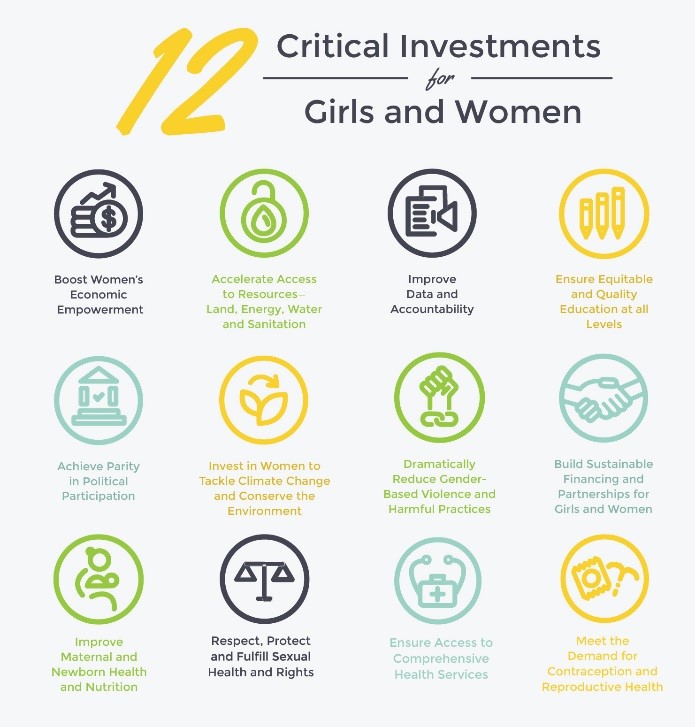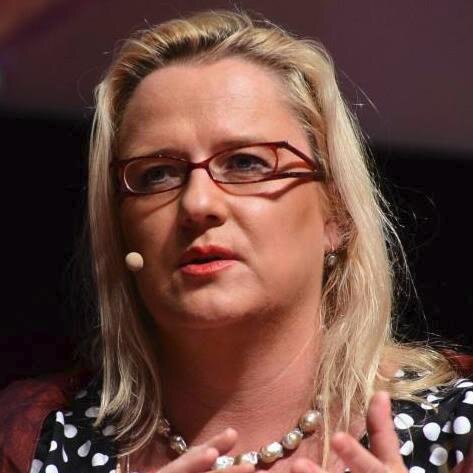 Produced by Women Deliver
May 10, 2016
Katja Iversen, CEO
Produced by Women Deliver
May 10, 2016
Katja Iversen, CEO
Published in partnership with PSI’s Impact Magazine.
Ample evidence from around the world confirms what experience tells us: women are drivers of development. Give girls and women access to healthcare and they will deliver more resilient families. Give them the potential to learn and earn and they will deliver stronger economies. Investing in girls and women not only enables them to reach their full potential, it creates a ripple effect that yields multiple benefits for families, communities and countries.
Yet, despite the overwhelming evidence, decision makers fail to prioritize girls and women again and again. They are denied access to comprehensive health services, confront barriers to education, are vulnerable to gender-based violence and face discrimination trying to secure property and financing to propel their families out of poverty.
In spite of tangible developmental gains — such as progress in gender equity in the classroom and reductions in maternal mortality — interventions targeting girls and women have not been sufficient to level the playing field. Why? Partly, because there has not been enough focus and funding, partly because these initiatives have been too siloed by failing to recognize the cross-cutting nature of the problems at hand. For example, increasing parity in education for girls and young women, particularly at the secondary and tertiary level, takes much more than enrolling girls in school. It requires a holistic approach that eliminates school fees, considers travel restrictions for students in remote areas, ensures gender-segregated water and sanitation facilities and focuses on the quality of education.
To speed progress for girls and women, we need to eliminate that siloed mentality so that development efforts over the next 15 years are built on a foundation of cross-sectorial collaboration and integration. Toward this end, Women Deliver has examined the Sustainable Development Goals (SDGs) and targets from a gender perspective and identified 12 areas for investment, programmatic and financial, that will reap considerable social and economic returns for societies in the decades ahead. These issues are at the heart of the Deliver for Good campaign, which Women Deliver and partners will launch this month at the 2016 Women Deliver Conference in Copenhagen to coincide with the dawn of the SDG era.
The Deliver for Good campaign abandons the perception of girls and women as passive recipients of aid who need protection and recognizes them as powerful  changemakers. Women carry much more than babies. Or water. They carry families. They carry businesses. They carry communities. They carry potential and solutions. And when we invest in their health, rights and wellbeing, they lift up entire countries, and everybody wins.
changemakers. Women carry much more than babies. Or water. They carry families. They carry businesses. They carry communities. They carry potential and solutions. And when we invest in their health, rights and wellbeing, they lift up entire countries, and everybody wins.
There are many positive models out there that we can emulate and adapt: initiatives that are bringing water and sanitation to schools in Zambia; eradicating child marriage in Malawi; reversing discriminatory land tenure policies in India; educating husbands about the importance of contraception in Niger and improving midwifery care in Cambodia.
These are all savvy investments. Consider family planning services, for example. Every dollar spent could yield as much as $120 in benefits, making investments in sexual and reproductive health and contraceptive access not only critical to the health and wellbeing of women, but cost-effective as well. Investing in women’s secure land tenure and property rights represents another effective long-term solution to advancing women’s economic empowerment and eliminating poverty. When women have equal property and inheritance rights, they earn nearly four times more income than those without.ii
With major challenges ahead, we can no longer afford to silence girls and women. Their voices need to resonate in households, communities, societies and halls of power. Investing in their health, rights, equality and wellbeing will create a wave of progress that will spur growth to the benefit of all.
To promote the Deliver for Good agenda, Women Deliver is partnering with NGOs from across sectors (including Population Services International) — UN agencies, corporate leaders, researchers, media and civil society – bringing organizations together to show how investing in girls and women can reap gains for any country working to build a more equitable, healthy and productive society.
Are you ready to Deliver for Good? To learn how and join the campaign, visit deliverforgood.org.

Katja Iversen joined Women Deliver as Chief Executive Officer in March 2014.



